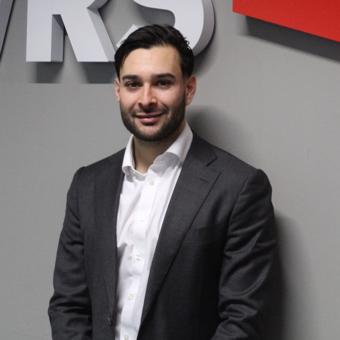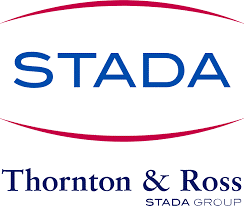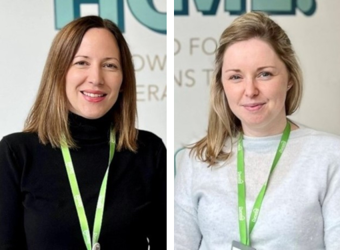Andrew Fordham, legal director (EMEA) at The Sherwin-Williams Company...
Andrew, firstly – can you tell readers of The Brief a bit about yourself and background?
After graduating from King’s College London, I completed the LPC at the College of Law, London, and trained and qualified with Eversheds in Birmingham, initially working in commercial litigation, and later moving to a non-contentious commercial role. In 2004 I moved to my first in house role as European legal director for another US company, Iron Mountain Inc. And since then, I have worked as first in-house counsel for a second US company, spent a short time back in private practice focused on international outsourcing and supply projects. I moved to Sherwin-Williams about 12 months ago, again to set up a local legal function for EMEA. Sherwin-Williams is a household name in the US and has expanded rapidly in EMEA in recent years. I am married and have two young kids, both boys, aged seven and five.
You’re now legal director (EMEA) at The Sherwin-Williams Company, what does your day to day role entail?
Well, it’s a bit of a tired cliché but no two days are the same, and part of the fun of my role is not knowing from day to day whether I’ll be sent off to negotiate a distributor agreement in France on one day, or discuss a potential acquisition in Poland the next. That said, there are two key elements to my role: the first is the reactive work, responding to the demands of the business from day to day, and that often requires me to be flexible and to re-prioritise; the second, arguably more important part, is the proactive work, which involves investing huge amounts of time travelling to sites, meeting the teams and really getting to know the inner workings of each division so that I understand their business and priorities, and work with them to achieve their goals.
The Sherwin-Williams Company is a US based organisation so what are the main differences between working for an American rather than a British business?
I think US companies are generally more accustomed to having, and working with, in-house legal teams, but in my experience, each one is very different. At Sherwin, we have a very strong and well-established in-house team in the US and South America, and the level of integration in the business is exceptionally high – something I am trying to replicate in EMEA, and so far so good. We are seen as trusted business partners and that is invaluable in allowing me to do my job effectively. The additional challenge as the EMEA branch of a US business is the need to educate and inform the US business about differences in laws, regulations and business practices on this side of the Atlantic. As Sherwin is a publicly traded company, I also have to work with the EMEA businesses to help them understand the US legal requirements that come with being part of a US-headquartered global business. Many of our recently acquired businesses were previously under European control and so much of this is new to the people on the ground in EMEA. The other obvious issue is the time difference, and the need to be available 24/7 to deal with any issues that arise!
Your role also involves working across Europe, the Middle East and Africa so how difficult is it to bridge such diverse cultures and interests?
At times it can be challenging understanding local business models, but the culture in the organisation is very well aligned. We have a fantastic track record of leveraging our local expertise, and it’s important to listen to local management and understand the drivers behind every transaction. Our challenge comes in operating market leading local businesses whilst developing our global brands, so much of our focus is in understanding local business and cultural issues and not being too “corporate” in the way we work. It is also vitally important that we have trusted external legal advisers locally, and that we use outside counsel in an intelligent and coordinated way – we like to use external counsel as an extension of our in-house resource and not as a stand-alone service.
Have you had any memorable situations that have stopped you in your tracks?
It’s always interesting looking at the nuts and bolts of a business after acquisition and the little surprises they throw up, but so far, no major surprises since I joined the company. However, I have had a couple of opportunities to travel to our corporate HQ in Cleveland, Ohio, and it is quite something to see at first hand the scale of the operation and brand recognition in the US. The US paint stores business is a real powerhouse operation with more than 3,500 stores, but what surprised me most was the consistency of culture across the organisation, which runs from top to bottom. The number of people who have been in the business for 20 or 25 years plus is amazing.
What’s next on the cards for the business?
We will look to grow our business organically, we invest very heavily in technology and innovation, and we actively pursue acquisition opportunities where they fit our business model. The Company will be 150 years old in 2016 and we have ambitious growth targets which align with this important anniversary. For the legal function, we are under new leadership from general counsel Cathy Kilbane, and we have an even deeper focus on providing expert legal support to our divisions. For EMEA, we are already looking to add a second lawyer to the team, which reflects the amount of engagement we have procured from the business. As we grow, we will become even more embedded in the divisional businesses as well as providing specialist lawyers where required. It’s a really exciting time for the legal team.
You’ve worked in both private practice and in-house during your career so what are the key differences between the two?
For me, the level of engagement in the business, and the level of understanding of where legal “fits in”, is far greater when working in-house, even with a large number of businesses (and countries) to support. I am much more involved in business issues, decision making etc and I can invest the time to really get to know my clients. I think the old myth that in-house was somehow an “easy option” was dispelled long ago, and whilst I don’t see a difference in the amount of work/hours I need to do to get the job done, I spend my time in a much more focused way. I think it makes a difference that I don’t have to worry about fees, bills, time recording etc, and I can focus all my time on providing the best legal service to the business.
What made you settle on an in-house position?
For my first in-house move, I really admired my boss (an MD, not a lawyer) for his ability to drive a business and understand what was important from a legal perspective. His advice has been invaluable throughout my career. He persuaded me to move in house and for me, the key thing was the ability to focus on my legal work, and bring my skills and experience to the table. I love doing legal work within a multi-disciplinary team where everyone makes a contribution, and, whilst I miss the collegiate environment of a large law firm, I learn so much everyday from the people I work with.
What do you think are the main benefits for a company that employs an in-house legal team?
By far the biggest benefit has to be the level of understanding of the business that in-house lawyers can attain by becoming completely immersed in the company. After that, I think an in-house team helps to bring a level of consistency to the business across all levels and helps to ensure that best practices are followed at all times. As external counsel, you can only go so far in advising the client and helping them make a decision, but in-house lawyers add another layer of value through their experience and understanding of how their particular business operates.
Finally, what advice would you give to someone looking to develop their career in-house?
Firstly, I am a huge advocate for every lawyer spending some time working in-house at some point in their career, even if on secondment, because it opens your eyes to the place legal services have in an organisation. There is also no better way of understanding if an in-house career is for you. Each company’s culture and demands are different, so my advice would be to study the specific company carefully, and to try to understand its culture and approach to business before taking a job in house.
To me, 90% of the job is forming great working relationships with the business leaders and staff in order to gain their trust and confidence. To do this, you need to know your subject and also know when to be quiet and listen to others round the table!










